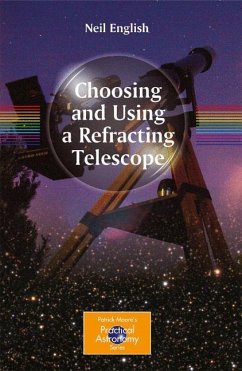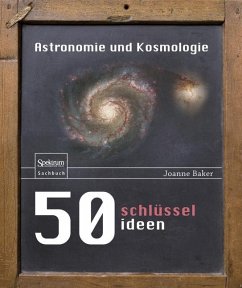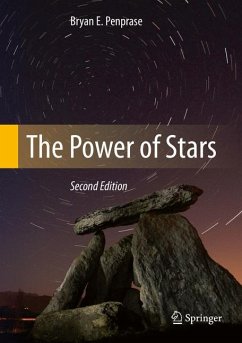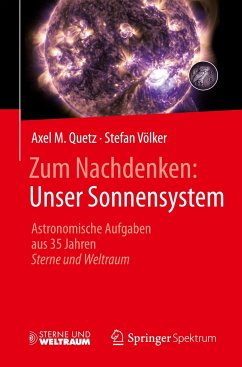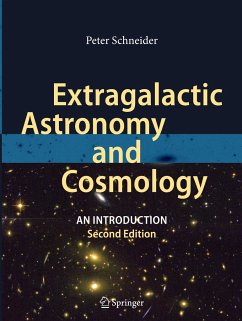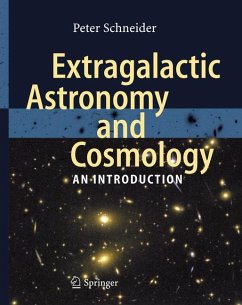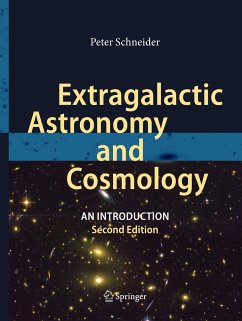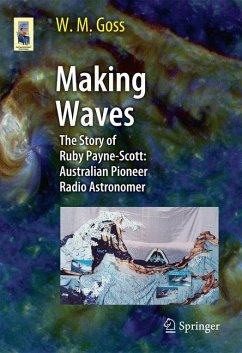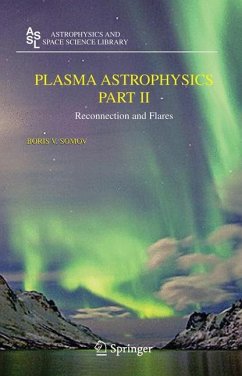
Physics of the Plasma Universe
Versandkostenfrei!
Versandfertig in 1-2 Wochen
92,99 €
inkl. MwSt.
Weitere Ausgaben:

PAYBACK Punkte
46 °P sammeln!
Today many scientists recognize plasma as the key element to understanding new observations in near-Earth, interplanetary, interstellar, and intergalactic space; in stars, galaxies, and clusters of galaxies, and throughout the observable universe. Physics of the Plasma Universe, 2nd Edition is an update of observations made across the entire cosmic electromagnetic spectrum over the two decades since the publication of the first edition. It addresses paradigm changing discoveries made by telescopes, planetary probes, satellites, and radio and space telescopes. The contents are the result of the...
Today many scientists recognize plasma as the key element to understanding new observations in near-Earth, interplanetary, interstellar, and intergalactic space; in stars, galaxies, and clusters of galaxies, and throughout the observable universe. Physics of the Plasma Universe, 2nd Edition is an update of observations made across the entire cosmic electromagnetic spectrum over the two decades since the publication of the first edition. It addresses paradigm changing discoveries made by telescopes, planetary probes, satellites, and radio and space telescopes. The contents are the result of the author's 37 years research at Livermore and Los Alamos National Laboratories, and the U.S. Department of Energy.
This book covers topics such as the large-scale structure and the filamentary universe; the formation of magnetic fields and galaxies, active galactic nuclei and quasars, the origin and abundance of light elements, star formation and the evolution of solar systems, and cosmic rays. Chapters 8 and 9 are based on the research of Professor Gerrit Verschuur, and reinvestigation of the manifestation of interstellar neutral hydrogen filaments from radio astronomical observations are given. Using data from the Green Bank 100-m telescope (GBT) of the National Radio Astronomy Observatory (NRAO), detailed information is presented for a non-cosmological origin for the cosmic microwave background quadruple moment.
This volume is aimed at graduate students and researchers active in the areas of cosmic plasmas and space science.
The supercomputer and experimental work was carried out within university, National laboratory, Department of Energy, and supporting NASA facilities.
This book covers topics such as the large-scale structure and the filamentary universe; the formation of magnetic fields and galaxies, active galactic nuclei and quasars, the origin and abundance of light elements, star formation and the evolution of solar systems, and cosmic rays. Chapters 8 and 9 are based on the research of Professor Gerrit Verschuur, and reinvestigation of the manifestation of interstellar neutral hydrogen filaments from radio astronomical observations are given. Using data from the Green Bank 100-m telescope (GBT) of the National Radio Astronomy Observatory (NRAO), detailed information is presented for a non-cosmological origin for the cosmic microwave background quadruple moment.
This volume is aimed at graduate students and researchers active in the areas of cosmic plasmas and space science.
The supercomputer and experimental work was carried out within university, National laboratory, Department of Energy, and supporting NASA facilities.





